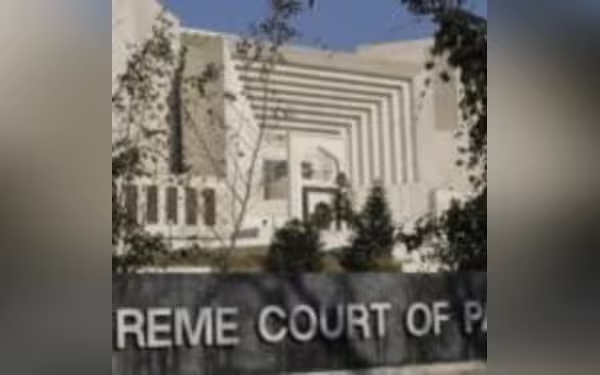Friday, November 8, 2024 03:38 AM
CJP Rejects PTI Objections on Article 63A Bench Formation
- CJP Isa dismisses PTI's objections as baseless.
- Court emphasizes independence amid intimidation threats.
- Judiciary's role crucial for Pakistan's democratic integrity.
 Image Credits: pakistantoday
Image Credits: pakistantodayCJP Qazi Faez Isa rejects PTI's objections on Article 63A bench, emphasizing judicial independence amid threats.
In a significant development within Pakistan's legal landscape, tensions escalated in the Supreme Court as the Chief Justice, Qazi Faez Isa, firmly rejected objections raised by the Pakistan Tehreek-e-Insaf (PTI) party regarding the formation of a five-member bench. This bench is tasked with reviewing a crucial verdict related to Article 63A, which addresses the disqualification of lawmakers who defy their party's directives. The situation intensified when a PTI lawyer, Tayyab Mustafain Kazmi, threatened the court, claiming that hundreds of PTI lawyers were prepared to intervene should the ruling be unfavorable.
During the hearing, Chief Justice Isa did not hesitate to assert the independence of the judiciary. He called for police assistance to maintain order in the courtroom, emphasizing that the court would not be swayed by intimidation tactics. "Do you want institutions to be run through threats? My only fault is that I have always shown patience," he stated, making it clear that the judiciary must operate free from external pressures.
The objections raised by PTI were dismissed as baseless by Chief Justice Isa, who clarified that the bench's formation adhered to all necessary legal protocols. PTI's legal counsel, Barrister Ali Zafar, argued that the party had not been adequately notified about the hearing, which he claimed compromised the fairness of the proceedings. However, the Chief Justice reiterated that the decision to form the bench was unanimous among the judges, stating, "We all agreed as a court to reject the objections raised against the bench’s legality." This assertion underscores the importance of maintaining judicial integrity and independence.
Justice Jamal Khan Mandokhail, also part of the bench, expressed concern over the increasing trend of targeting judges when their decisions do not align with the interests of specific political parties. He remarked, "This behaviour is unacceptable. We are here for the integrity of the institution, not for money or power. The judiciary must remain independent." This statement highlights the critical role of the judiciary in upholding democratic values in Pakistan.
Despite the heated exchanges, the Chief Justice instructed Barrister Zafar to continue with his arguments, signaling that the court would not be deterred by external pressures. The ongoing case is pivotal, as it revolves around the Supreme Court's earlier interpretation of Article 63A, which has significant implications for political discipline within Pakistan's party system.
As the legal proceedings unfold, it is essential to recognize the broader implications of this case. The judiciary's ability to operate independently is crucial for the health of Pakistan's democracy. The events in the Supreme Court serve as a reminder of the delicate balance between political power and judicial authority. Upholding the rule of law is not just a legal obligation; it is a cornerstone of a functioning democracy. As citizens, it is our responsibility to remain informed and engaged in these critical discussions that shape the future of our nation.













